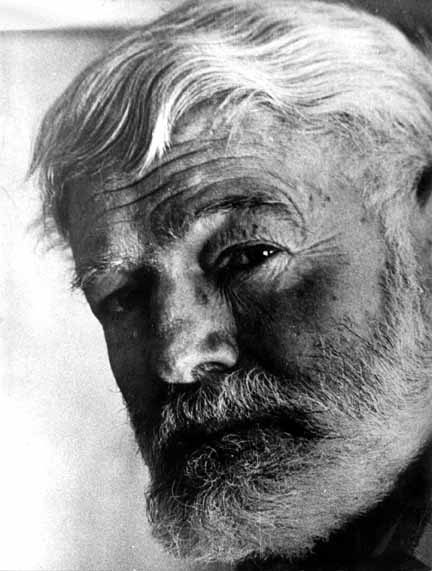http://voiceseducation.org/content/poets-world-war-ii
Ernest Hemingway
Chapter Heading
FOR we have thought
the longer thoughts
And gone the shorter
way.
And we have danced
to devil's tunes
Shivering home to
pray;
To serve one master
in the night,
Another in the day.


Ernest Hemingway
(1899-1961)
Born in Oak Park,
Illinois in 1899, is first and foremost revered as one of the premier writers
of the twentieth century. Hemingway started his writing career at
seventeen as a newspaper writer, went off as a volunteer in an ambulance unit
during the First World War in the Italian Army. When he returned to the
States, he returned to writing for newspapers. During World War II he
received the Bronze Star for his work as a war correspondent. His most
important work, The Sun Also Rises, was
released in 1926. This was followed by a number of highly successful
novels: A Farewell to Arms (1926), For Whom the Bell Tolls (1940) and The Old Man and the Sea (1952), for which he
won a Pulitzer Prize. He received the Nobel Prize in Literature in 1954
for his lifetime of literary achievements. He died in 1961.
<http://voiceseducation.org/content/egrnest-hemingway-american>
The Poets of World War II
Introduction
The various sections
of Voices in Wartime’s, The World at War: World
War II are filled with the poetry of hundreds of poets. In the
“case study” section, poets who were directly linked to a specific event are
highlighted. For example, an excerpt from Edna St. Vincent Millay’s long
poem, “Lidice,” recounts a horrendous massacre in that Czech village at the
hands of the Nazis; and Anna Akhmatova recalls the 900-Day Siege of Leingrad in
the case study of the same name. In the study on the dropping of the
first atomic bomb on Hiroshima, the witness poetry of Toge Sankichi and Shinoe
Shoda recount that catastrophic event.
This section
features more than 130 poets, from both sides of the Atlantic and Pacific who
write about the Second World War. The majority of these writers are
professional poets coming from different sides of the war, many of them
intimately involved in the struggle to survive the war. Some never lived
to see the liberation, or an end to their concentration camp lives, or the
signing of the armistice. Others who write of the horrors of the
battlefields do so because of their sense of history, of recalling stories they
heard, or in fear that the world may once again lose its sanity and embark on
still another war.
Incollato
da <http://voiceseducation.org/content/poets-world-war-ii>
§§§§§§§§§§§§§§§§§§§§§§




No comments:
Post a Comment